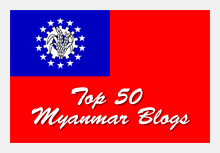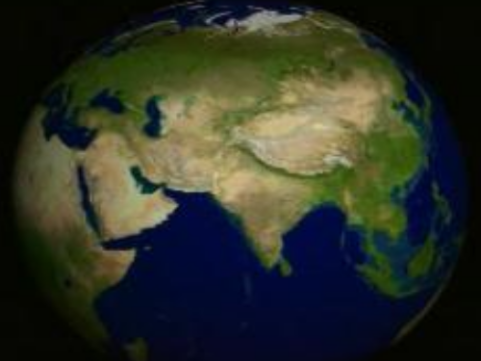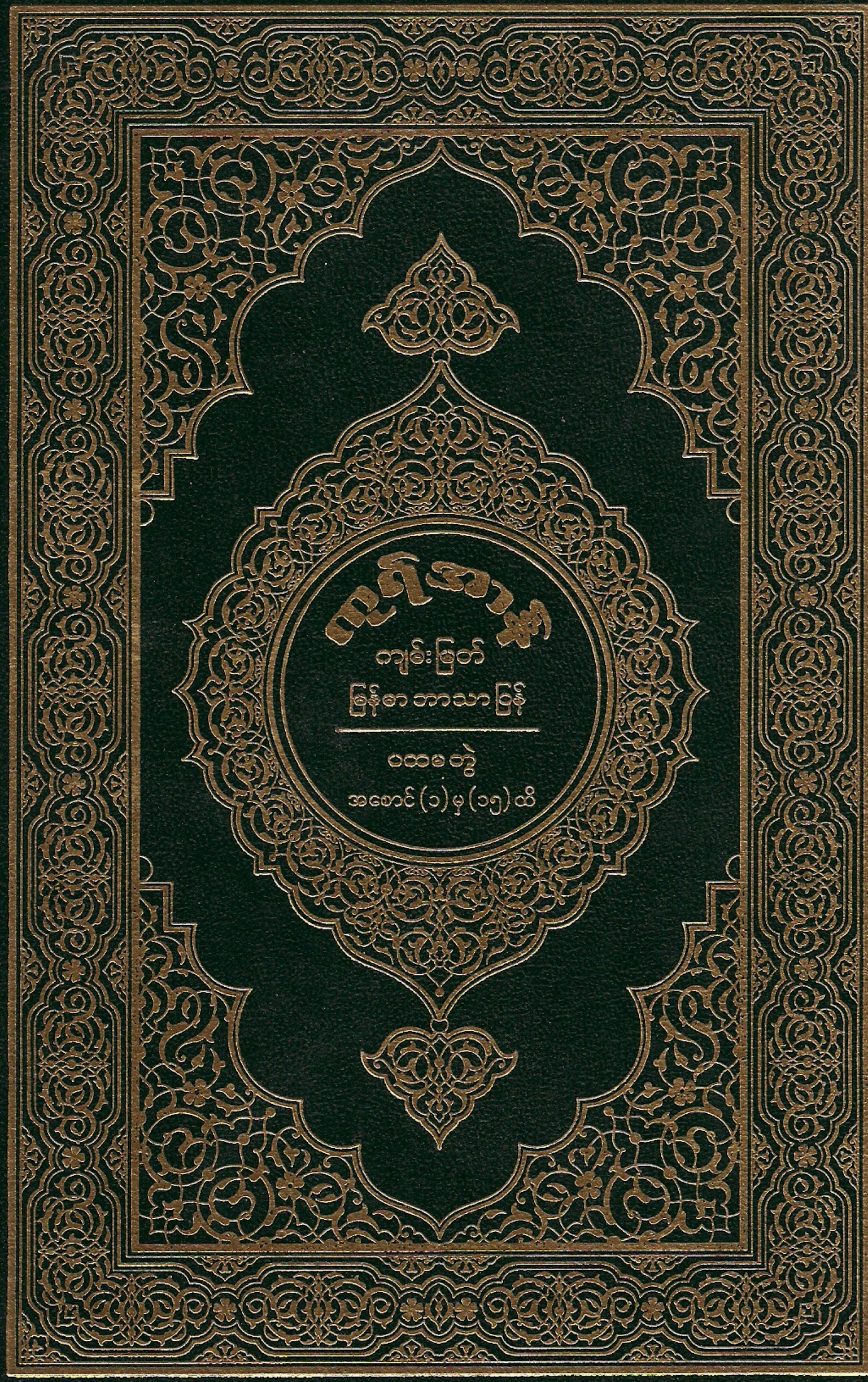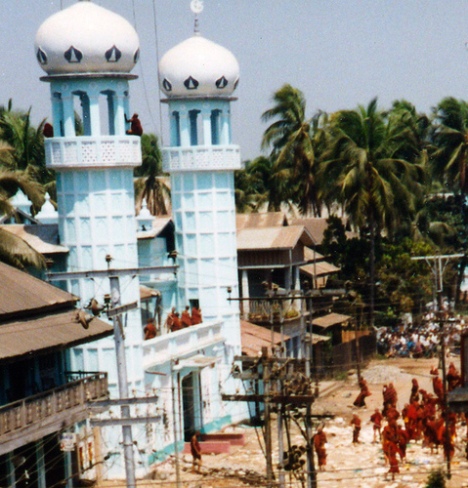Proposal to set up
Myanmar Refugee/Migrant pilot Project
as A test case to settle I
Contents
-
Summary
-
Diaspora
-
Traditional ineffective process
-
Analysis of problems arising from present system
-
Almost impossible to improve Burma/Myanmar’s political situation
-
Our proposal
-
Possible benefits to all parties
.
A. Summary
To solve the Burmese/Myanmar refugee problem, and illegal or undocumented labour problem, as well as to solve similar refugee problems around the world, UNHCR, UN and Host Governments should look at this problem from an out-of-the-box, unorthodox angle.
-
Request UNHCR to issue Certificate of Identity in lieu of International Passports for all refugees all over the world, and in particular, to start this pilot project with Burmese Refugees and Burmese illegal immigrants without much differentiation or discrimination whether they are political or economic migrants.
-
UNHCR should open vocational training and language training centres according to the demand for manpower.
-
UNHCR should form a manpower training, management and supply company and negotiate with multinational companies and countries around the world to which to ultimately export this trained manpower.
B. Diaspora
This is the recently popularised word describing the phenomenon of dispersal of people, to describe the basic process, pattern, cause and effects of migrations of people.
The dispersed people may be categorised as follows:
1. Professional and investor migration
2. Documented labour migration
3. Refugees and asylum seekers
4. Undocumented or illegal immigrants
5. Various economic migrants
According to the 1951 Convention relating to the Status of Refugees, “a refugee is a person, who owing to a well-founded fear of being persecuted for reasons of race, religion, nationality, membership of a particular social group, or political opinion, is outside the country of his nationality, and is unable to or, owing to such fear, is unwilling to avail himself of the protection of that country”.
However, none of Burma’s immediate neighbours are parties to the (1951 Refugee) Convention, nor have they ever officially recognized the refugees.
In addition, this definition even fails to include the internally displaced persons.
It is very difficult to clearly differentiate the real refugees from the so-called economic migrants. There is a very thin and faint line between these two categories.
With the present situation in Burma, we have to think whether we really can or need to clearly differentiate them. We should consider and see this from a holistic viewpoint, not only in Burma but also in other countries where similar widespread socio-economic problems originated in political conditions which are difficult to resolve.
C. Traditional INEFFECTIVE process
1. Asylum seekers are put into refugee camps that are managed by host governments and UNHCR.
2. After a long wait for the interviews and some investigations, the refugees are issued with Refugee certificates.
3. The authorities search for third countries in which to send and settle the refugees. These countries are only willing to accept a limit ed number of refugees.
4. In cases where the present refugees entered illegally, request the host country to convert them into a legal work force.
5. Repatriate or re-settle refugees back int o their country of origin, after prolonged negotiations or after the conflict has been controlled. Continuously support and monitor their conditions there.
(a) These measures help part of the problems but are very slow and time-consuming, which result in frustration and anger from the refugees as well as from the host countries.
We should not forget that the Palestinians are still in the UNHCR camps after 50 long years and although UNHCR had to spend a lot of money, the condition of the refugees in those camps is deplorable. Burmese refugee camps near the Thai-Burma and Bangladesh-Burma borders are in worse conditions and refugees are not happy with their status.
(b) UNHCR is slow to accept, register, interview and process applicants for settlement in third countries.
(c) Host countries are reluctant to allow the UNHCR protected persons to stay and work freely in their countries before resettlement in a third country, for the following reasons:
i. They fear that those UNHCR card-holders would permanently stay in the host country.
ii. Thei r citizens, especially the Labour Unions, are against allowing the illegals or refugees to work in their country. They would not be able to compete with the refugees who are willing to do 3D jobs with low salaries.
(d) In Malaysia, Thailand and Burma’s western neighbour countries, UNHCR has stopped new registrations at the present time.
(e) Without the UNHCR Card, Malaysian government enforcement agencies refuse to recognize the refugee status of the refugees and arrest them as illegal immigrants. Presently, the Malaysian government accepts the UNHCR Cards but they could change their acceptance criteria later, once UNHCR freely issues them without follow-up programmes to quickly resettle the refugees in third countries. The Dilemma now is that the Malaysian authorities are willing to accept UNHCR registration but UNHCR has stopped all new registrations. UNHCR seems to have problems getting third countries that are willing to accept refugees and grant them full rights.
(f) There are about one million refugees, asylum seekers and illegal workers in
Burma’s neighbouring countries and elsewhere:
· In Malaysia, 15,000 Rohingyas, 5,000 Chins and 20,000 Burmese Muslims
· In Thailand, 400,000 Shans, Mons, and Karens
· In Bangladesh, 120,000 – 220,000 Rohingyas and other races
· In India, 50,000 Chins and other races
· There are a lot of illegal immigrants from Burma around the world, e.g. Japan, Korea, Taiwan, USA, Australia, Europe and also in the abovementioned neighbours. Host governments do not seem very eager to settle the refugee problems so that they could continue putting pressure on the origin or source country. Arabs seem to keep the Palestinians as refugees to put pressure on Israel and to leverage world opinion. (This is only my personal view and even if it is right, there are many people who agree with that idea.)
Ethnic and religious links seem to play little or no part in the negotiations when considering the re-settlement of Burmese refugees. Refugees like the Burma’s Shans in Thailand (who are known as Thai Yai, meaning Big T hai) are likewise cold-shouldered by the hosts. Thais do not wish to keep their ethnically similar Buddhist brothers, Shans, Mons and Karens. (There are Buddhist and Christian Karens.) Some historians have commented that Thais seem to have a hidden agenda in keeping their cousins, some of whom are rebels, as a buffer against their strong Burmese enemy. This has been going on for few centuries.
Chins in India are related to the Mizorams and Rohingyas (who are closely related to Chittagonians) in Bangladesh, and Burmese Muslims in Malaysia also are facing the same problems with their ethnic and religious “brothers”.
(g) Because of all these problems, it was no wonder that at the meeting organized among Altsean-Burma, Burma Border Consortium, Burma Issues, Forum Asia, Jesuit Refugee Service and Non-Violence International, which coincided with the visit to Pang Tractor refugee camp in Maehongson by Rev Jesse Jackson, the scathing remarks of Sunai Phasuk from The Asian Forum for Human Rights and Development (better known as Forum Asia) were made:
“UN High Commissioner on Refugees is doing little to protect its charges.”
Dr Mark Tamthai of Thailand’s National Security Council (NSC) supported Sunai Phasuk’s attack.
Ms Kirsten Young from the UNHCR’s Bangkok regional office lamely replied that “refugee protection is mainly state responsibility.”
D. analysis of Problems arising from the pr esent system
1. UNHCR has to take time for the interviews and to undertake investigations to certify that the person is a real refugee or a person of concern. It is not easy to differentiate the real refugees from economic migrants. As almost the whole population of Burma is suffering under the cruel, autocratic Junta, we hope it is not necessary to differentiate between these two categories because the line between them is very thin. If we do away with this differentiation, the resettlement process will be faster. We all know that it would open the floodgates and tremendously increase the exodus of the people from Burma. I will give my views and answer later in this proposal.
2. UNHCR has to search for a third party/country which is willing to accept asylum seekers as full-fledged refugees with all the rights including their welfare and citizenship etc.
3. Host countries are not happy if UNHCR just issues a lot of certificates but fail to follow up with quick repatriation of all the refugees to a third country. They are worried that those UNHCR recognized refugees would stay on indefinitely in their country and they would ultimately have to accept their offspring and descendents as their citizens. Before that, there may also be a lot of social, political, economic problems arising from the refugees. To highlight a few: competing in the labour market with locals, intermarriage with locals, burden on locals’ health, housing, and infrastructure, and some increase in criminal activities.
4. 4. Refugees are not happy with the almost endless delays for each and every step of the above process. They are angry and frustrated with the constant “harassments” of raids, detention, deportation and terrible conditions in the various detention centres. Not only are the living conditions bad, there is no proper planning for language and vocational training there. There is not much hope for their children’s future education and development.
5. Refugees accepting re-settlement in third countries have limited fund allocations and face an almost strict quota of accepted persons. In democracies, host countries have to consider the sensitivities of their voters.
We all know that the above facts prove that we have to change the present status quo. Then we have to think about ways to improve the socio-economic changes in Burma/Myanmar or consider a “Regime Change”. This is also not practical and an almost impossible task in the near future. We would like to explain this in the following section.
E. Almost impossible to improve Burma/Myanmar’S POLITICAL SITUATION
First of all, we have to accept that we cannot do anything to improve the political conditions in Burma.
-
No country is willing to wage a war for a “REGIME CHANGE” in Burma/Myanmar. If not for the 9-11 tragedy and the bad experience of expensive, bitter, and protracted rebellions in Iraq, there would be hope for more aggressive action by the US in Burma.
-
China India and ASEAN countries, especially Thailand are not only on the J unta’s side but are also protecting them from the West’s economic sanctions and political attacks.
-
-
We still remember the days after the 1967 anti-Chinese riots and the killing of thousands of Chinese in Yangon. Communist China gave full support to the Burmese Communist Party. There were rumours, surely over-exaggerated, that 100,000 Red Army soldiers “deserte d” the Chinese Army, wore the new Wa rebel uniforms, and joined the Burma Communist compatriots. They failed to dislodge the Junta.
-
-
-
India’s few decades of support to the pro-democracy forces also failed.
-
-
-
It was reported in the Burmese newspapers that Burma’s last democratically elected Prime Minister U Nu had decided to return to Burma after abandoning his Government in exile in Thailand. The Burmese newspapers alleged that the neighbour’s Deputy Defence Minister offered full financial and military support if U Nu agreed to allow Shan State to join their country after independence. This may be also have been a lie to drum up the nationalist spirit of Burmans to support the unpopular Military government.
-
Important Note: we are not revealing or repeating the above rumours and unfounded allegations to accuse any country, nor do we even wish to know the truth. (Some of us may even wish for this kind of external help nowadays.) We only wish to prove that even under these adverse conditions, there was no successful regime change. Further, with the present reversal of conditions of switching supports by all Burma’s neighbours, it is almost impossible to topple the Junta.
-
The Burmese people’s popular uprising on 8th. August 1988, famously dubbed the 8888 movement, and subsequent election victory of NLD also could not do more than dent the international image of the Junta.
-
ASEAN’s constructive engagement, USA and EU led economic sanctions, and UN Secretary General Kofi Anan’s representative Tan Sri Razali Ismail’s attempts also failed badly.
-
Even if NLD got the chance to f orm a government and democracy prevails, the Ethnic Minority and minority Religions would continue to suffer the discriminations of their Big Brother, the Burman Buddhists.
-
Even if all transferring of power could be smooth and rapid, it would take at least a generation to change the habits and mindsets of the government and private sector employees, and to rebuild the economic infrastructure to be on par with that of the developing neighbours’.
7, Myanmar’s crippling economy and stifled demands for political and economic reforms will fuel more racial violence in the near future. The Military government may incite racial and religious hatred in order to take advantage and profit from the riots. Both sides will promote this with their own agendas. The Government will try to divert the attention of the people’s hatred and anger directed to them. They need a scapegoat for their economic and political failures. It will succeed as this divide-and-rule policy is a well-tested and effective policy. In addition, it will also show all the minorities that the government is their protector. At the same time, the government can prove that they were needed to unite the country and for the maintenance of internal peace. The bogeyman is needed to drum up support for them and all the people are coerced to unite behind the Military leaders. The anti-migrant policy, anti-foreigner policy, foreign threats, Communists and western countries’ imperialist plots, and danger of racial and religious riots, are used effectively and successfully by numerous dictators all over the world.
-
Most of the governments around the world never try to understand the very reasons many Burmese Citizens of all races and religions wish to leave their country in the first instance. To state a few:
· Racial and religious discriminatory policies that suck the life out of minority ethnic and religious groups, sometimes amounting to ethnic cleansings.
· Cruel and lawless Military dictators’ oppressive and ever changing unjust laws, created according to their whims and fancies.
· The lopsided military-appointed eunuch judiciary who is always loyal and obedient to the Military rulers.
Widespread corruption, abuse of power and absence of accountability at each and every level of the government machinery.
· The police also ignore the rule of law but rule by the law, ordered by their army masters.
· Dozens of local armed militia groups signed peace treaty with the army, and the still active Ethnic Minority rebels at the Burma borders are also crushing the people from other side.
· There may be not an obvious war but there are internal conflicts or rebellions as well as a lot of internally displaced persons in Burma.
· Numerous restrictions on the people’s daily life, travel, investments, trade, monetary policy, transport of goods, import/export, religion, education, etc. are pushing the people to their limits.
9. As long as there is no respect for the RIGHTS OF ETHNIC MINORITIES AND DISCRIMINATIONS against the minority religions, there is no hope of stopping people leaving Myanmar. Mary Robinson, High Commissioner for Human Rights (1997-2002) wrote: “… today’s human rights violations are the causes of tomorrow’s conflicts.”
On December 10, 1948 the General Assembly of the United Nations adopted and proclaimed THE UNIVERSAL DECLARATION OF HUMAN RIGHTS as a common standard of achievement for all peoples a nd all nations.
On the 50th Anniversary of this Declaration, UN Security General Kofi Annan said:
“Human Rights are foreign to no culture and native to all Nations. It is a mirror that at once flatters us and shames us, that bears witness to a record of progress for parts of humanity while revealing a history and reality of horrors for others.”
“It was never the people who complained of the universality of human rights, nor did the people consider human rights as a Western or Northern imposition. It was often their leaders who did so.”
After looking at the above quotations, real conditions in Burma/Myanmar and the people’s plight, we do not need to give any further evidence to convince the reader that there are a lot of problems going on in Burma/Myanmar that are almost impossible to solve or change, and no one can prevent the people’s flight out of the country.
SHWE BA (To be continued next week)
Filed under: ASEAN, Burma, Burmese, EU, Human Rights, Individual Freedom, Islam, Myanmar, Myanmar Military, Refugees, SPDC, UN, UNHCR, USA | Tagged: Human Rights, Individual Freedom, Military Junta, Myanmar, Racial Discrimination, SPDC, Tatmadaw |












+(Small).jpg)


[…] Myanmar Refugee/Migrant pilot Project Proposal I […]